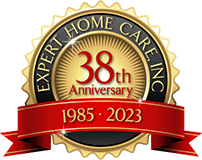What can you do to save a life?
The National Center on Elder Abuse (NCEA) reported that some half a million seniors nationwide were abused in 1996.¹ That estimate confirmed a long-held theory of the aging research community that reported cases are only the “tip of the iceberg,” and for every reported incident of elder abuse, approximately five go unreported.
Fast forward a few years and a 2005 NCEA fact sheet states: “No one knows precisely how many older Americans are being abused, neglected, or exploited … there are no official national statistics. According to the best available estimates between 1 and 2 million Americans age 65 or older have been injured, exploited, or otherwise mistreated by someone on whom they depended for care or protection.” ²
The National Committee for the Prevention of Elder Abuse (NCPEA) defines elder abuse as: Any form of mistreatment that results in harm or loss to an older person. They use the following abuse categories: physical, sexual, psychological, financial, neglect and self-neglect. Because older victims usually have fewer support systems and reserves — physical, psychological, and economic — the impact of abuse and neglect is magnified, often causing a downward spiral of lost independence, serious illness and even death.
So why is it so difficult to track and prevent elder abuse? Chayo Reyes, a retired LAPD detective, instructor for the California Department of Justice, and proprietor of Elder Financial Protective Services, says that many elder crimes are not recorded or researched adequately. This is because the criminal is perceived as having “legal control” over the victim’s estate. Reyes adds, “Crimes against elders are not categorized as such, but more likely recorded as burglaries or domestic violence, and so statistics are lost in the system.”
Most seniors are healthy, active, and alert. Yet, over time, some seniors may experience diminished physical and mental capacities, and may do their best to disguise these losses. Taken together, such characteristics make many seniors vulnerable to miscommunication, misunderstanding, and worse, to being taken advantage of. The fact that seniors, aged 50 and over, control 70 percent of the nation’s wealth makes them a prime target for theft.
So how can you be aware and actively prevent elder abuse? Gerontologist Marion Somers, Ph.D. says there are signs of changes we should look for, such as:
   * Weight: Have they gained or lost weight?
   * Attire: Has their appearance changed; are they taking less care of themselves, and no longer neat or tidy?
   * Personal hygiene: Are they not bathing? Is their hair not clean or combed?
   * Social Interaction: Are they not as social, ignoring the telephone, withdrawn?
   * Voice: Has the tone or clarity of their voice changed?
To learn more about elder abuse — the signs and solutions — the NCPEA recommends that professionals working with, and families caring for elders, watch “Saving Our Parents,” a new and exciting documentary. Winner of the 16th Annual Mature Media Awards Educational & Training Video Program, the film is the collaborative effort of numerous experts and professionals. Divided into easily viewable segments, it contains interviews of victimized families, expertise from various professional fields and inspirational advice and tips. Visit www.savingourparents.com to view clips. Segments include:
   * Predatory caregivers and crooked conservators
   * Financial scam artists
   * Neglectful nursing homes
   * Generations living together
   * The importance of hiring a geriatric care manager
   * Dangerous hoarding disorders that pose health risks
   * Alzheimer’s: Former president Ronald Reagan and his son, Michael’s, transformational experience
   * Tips from elder abuse attorney
¹ 1998 National Elder Abuse Incidence Study (NEAIS)
² Elder Mistreatment: Abuse, Neglect and Exploitation in an Aging America. 2003. Washington, DC: National Research Council Panel to Review and Prevalence of Elder Abuse and Neglect.
Gillian White, Staff Writer
Delphi Health Products, Inc.
- NJ Home Health Care Client Bill of Rights - March 12, 2019
- Senior Home Care Preparation For New Jersey Families - December 17, 2018
- Elder Abuse More Common Than Thought - December 10, 2018

